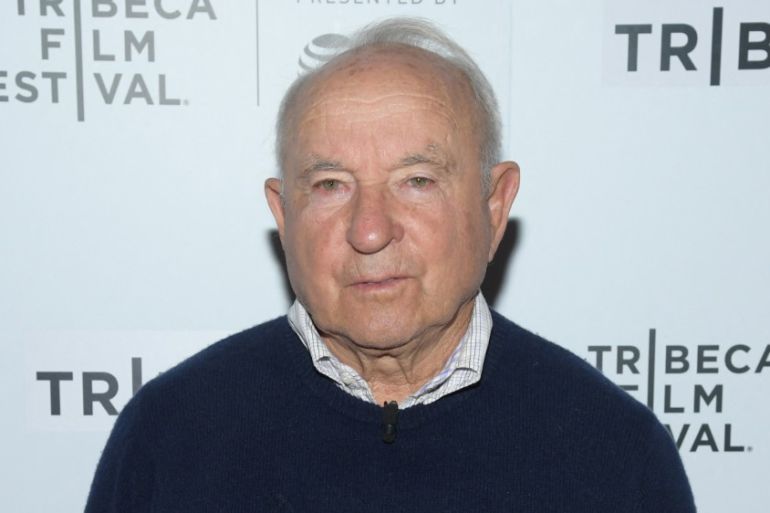Patagonia owner Yvon Chouinard gives company away to save planet
Billionaire founder of outdoor apparel brand transfers all the company’s stock to a non-profit dedicated to fighting climate crisis.

The billionaire founder of outdoor apparel brand Patagonia, known for supporting environmental causes, says he is giving away the company to a trust that will use its profit to fight the climate crisis.
Yvon Chouinard, aged 83, who became famous for alpine climbs in Yosemite National Park and has a net worth of $1.2bn, could have sold the brand – valued at $3bn, according to The New York Times newspaper – or taken it public. He made the announcement on Wednesday.
Keep reading
list of 3 itemsAfrican nations demand climate change financing ahead of COP27
Climate Change: Leaving Pakistan out to dry
Instead, he, his wife and their two children agreed to transfer all of Patagonia’s voting shares, or stock that gives the holder voting rights, in the company to a trust in charge of ensuring the brand’s environmental values are respected.
All of Patagonia’s non-voting shares have been transferred to a non-profit body dedicated to fighting against climate change and nature protection and conservation. Company profits will also be donated to the non-profit.
“Earth is now our only shareholder,” Chouinard wrote in an open letter on Wednesday posted to Patagonia’s website.
“I never wanted to be a businessman,” he explained. “I started as a craftsman, making climbing gear for my friends and myself, then got into apparel.”
He added: “As we began to witness the extent of global warming and ecological destruction, and our own contribution to it, Patagonia committed to using our company to change the way business was done.”
Instead of “going public,” you could say we’re “going purpose.” Instead of extracting value from nature and transforming it into wealth for investors, we’ll use the wealth Patagonia creates to protect the source of all wealth.
Read Yvon's letter at https://t.co/TolGLfHEGG
— Patagonia (@patagonia) September 14, 2022
Founded almost 50 years ago, Patagonia quickly became committed to conserving nature, by carefully choosing its raw materials and donating one percent of its sales each year to environmental non-governmental organisations or NGOs.
But Chouinard has decided this is no longer enough.
One option was to sell Patagonia and donate the money. “But we couldn’t be sure a new owner would maintain our values or keep our team of people around the world employed,” he said in the letter.
Taking the company public would have been a “disaster,” he said: “Even public companies with good intentions are under too much pressure to create short-term gain at the expense of long-term vitality and responsibility.”
Patagonia will remain a company, which cares about its financial health and will operate with a board of directors and a CEO.
The Chouinard family will no longer get any money from the company but will stay on the board, oversee the trust and guide the nonprofit’s philanthropic work.
After the announcement, members of Patogania’s board celebrated the decision.
“Instead of exploiting natural resources to make shareholder returns, we are turning shareholder capitalism on its head by making the Earth our only shareholder,” Charles Conn, chair of the board, said in an open letter.
“As a closely held company, this huge change was easier for us than others. But the point is for companies to make transparent purpose commitments that make sense to their business, and to be held to account by their communities,” he added.